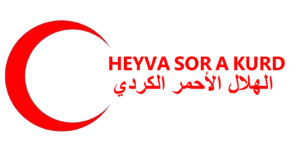
According to the World Health Organization and following the principles of the United Nations Charter, health is one of the fundamental rights of every person without distinction as to race, religion, political belief, economic or social condition. The health of all peoples is essential to achieving peace and security and depends on the full cooperation of individuals and countries. ….
On April 16, we were notified, along with our partners in NES FORUM, that the Health Authority of Northern Syria’s self-management had attended, the first confirmed case of COVID-19 in northeastern Syria through the Regional Office of WHO.
The case is 53-year-old man from Al-Hasakah city
The symptoms were general weakness with fever, cough, difficulty breathing, sore throat, muscle aches, headache, and pneumonia.
The patient was suffering from high blood pressure and other heart diseases, and the case did not have a travel history or contracting with other suspected cases where the sample was taken on March 27 and sent to Damascus on March 29 and the patient unfortunately died on April 2, in the intensive care unit in Qamishli National Hospital, on the same day, April 2, the confirmation was done in the laboratory in Damascus, and the results of the analysis were not shared by the World Health Organization, nor by the Syrian Ministry of Health with any health organization or party operating in northern Syria, but we were notified, late and sudden, of World Health Office -the regional office- which is outside Syria.
In total, there were 33 confirmed cases of COVID-19 in Syria, five of which were recovering, and two cases died, 19 of which were recorded since the beginning of April.
There is a high risk of a large spread of the virus due to the delay in informing the self-administration and humanitarian organisation in northern Syria of the positive result, after 15 days of the case, and what is particularly worrying is the possibility of health workers being exposed due to their rotation in the health facilities that received the case.
There is a need to impose other restrictions and to apply greater social divergence.
The risk of COVID-19 to northern Syria is very large, due to the presence of more than 300,000 displaced people and refugees who do not have access to adequate preventive health services in light of the outbreak of COVID-19. This includes 118879 people in ten official and unofficial camps, who cannot obtain health measures,Adequate preventive or social distancing













